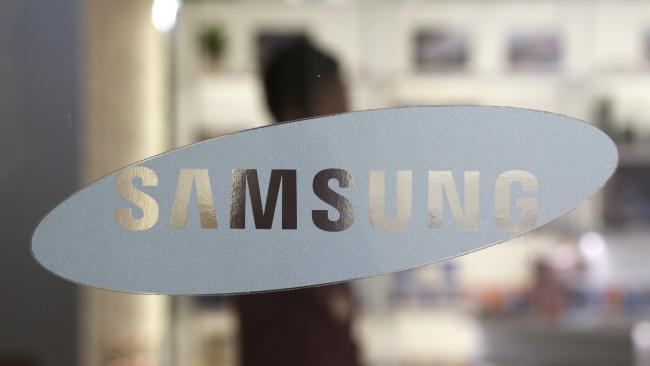
HUMAN rights groups have uncovered a shocking truth behind our tech obsession and it’s not pretty.
According to Amnesty International and Afrewatch, children as young as seven are being exploited by unscrupulous mining companies to extract the material used to make lithium-ion batteries that power our smartphones and tablets.
The report found up to 40,000 children worked in mines across the Democratic Republic of Congo (DRC) in 2014. They often worked for up to 12 hours and got paid between one and two US dollars a day.
And the authors claim the world’s major electronics companies, such as Apple, Samsung and Sony, are failing to stop it.
In their report, This is what we die for: Human rights abuses in the Democratic Republic of the Congo power the global trade in cobalt, the agencies say they were able to link the sale of the material used to make the batteries, cobalt, to mines that used child labour.
“The glamorous shop displays and marketing of state of the art technologies are a stark contrast to the children carrying bags of rocks, and miners in narrow man-made tunnels risking permanent lung damage,” Amnesty International business and human rights researcher Mark Dummett said. “Millions of people enjoy the benefits of new technologies but rarely ask how they are made. It is high time the big brands took some responsibility for the mining of the raw materials that make their lucrative products.”
More than half the world’s cobalt comes from the Democratic Republic of Congo (DRC), and about 20 per cent of that is extracted using a practice known as artisanal mining, where workers use their bare hands or basic tools such as chisels to mine materials. They are not supplied with safety hats, protective clothing or masks.

Congolese children sift through broken rock fragments searching for cobalt, the material used to make lithium-ion batteries for our smartphones and laptops.Source:Supplied
According to the report, traders buy cobalt from areas where this practice is rife then sell it to Congo Dongfang Mining (CDM), a wholly owned subsidiary of Chinese mineral giant Zhejiang Huayou Cobalt Ltd (Huayou Cobalt).
After sifting through Huayou Cobalt’s investor documents, the groups discovered that after the companies processed the material they sold it to three battery component manufacturers, Ningbo Shanshan and Tianjin Bamo from China and L&F Materials from South Korea.
These manufacturers then sold the material on to battery makers that claim to supply technology and car companies.
Amnesty International contacted 16 multinationals that were listed as direct or indirect customers of the battery manufacturers contained in the report that sourced processed ore from Huayou Cobalt.
They were Ahong, Apple, BYD, Daimler, Dell, HP, Huawei, Inventec, Lenovo, LG, Microsoft, Samsung, Sony, Vodafone, Volkswagen and ZTE.
Of those, Amnesty claims one company admitted the connection, Microsoft, while four were unable to say for certain whether they were buying cobalt from the DRC or Huayou Cobalt. Six said they were investigating the claims.
Five denied sourcing cobalt from Huayou Cobalt, but Amnesty says they are listed as customers in the company documents of battery manufacturers. Two multinationals denied sourcing cobalt from DRC.
Mr Dummet told news.com.au that, besides the use of child labour and the appalling conditions experienced by the workers, he found it shocking these big multinationals, whose combined global profits are estimated to be about $125 billion, failed to have systems in place to trace cobalt.
“I found it really surprising that none of the companies said that they didn’t already have in place systems for tracing the cobalt in their products because it wouldn’t be difficult for anybody to know or find out that so much of it comes from the DRC, which we all know is one of the world’s poorest countries and has a history of conflict, and human rights abuses,” he explained. “So, even the very basic due diligence would have established that there could have been problems where that has been mined.
“I also think the public would be surprised to know and shocked that companies like Apple and Samsung don’t already have systems in place for tracing these minerals. And if we can help raise the profile of this issue then that’s a good thing.”

Apple is one of the companies named in an Amnesty International report, which has uncovered the material used to make batteries for phones and laptops could have come from mines that use child labour. Picture: AFP/Kenzo TribouillardSource:AFP
Mr Dummet said when Amnesty contacted the companies, all said they had policies in place regarding human rights abuses and the use of child labour but when pressed further about cobalt they were unable to “give specifics”.
“So I think what we will want to see from these companies is for them to match their fine words with action on the ground,” he said.
Amnesty International and Afrewatch researchers spoke to 87 current and former cobalt miners, 17 of them children, from five mine sites in southern DRC in April and May 2015. They also interviewed 18 cobalt traders and followed vehicles of miners and traders as they carried cobalt ore from mines to markets where larger companies bought the ore.
According to the report, at least 80 artisanal miners died in southern DRC between September 2014 and December 2015. But it says the true figure is unknown as many accidents go unrecorded and bodies are left buried in the rubble.
“While a lot of the companies are the makers of phones and laptops, cobalt is increasingly being used in electric vehicles as well. And the people who buy electric vehicles are obviously concerned about the environment and I think would be appalled to think that children could be involved in the mining of one the materials that goes into them,” Mr Dummet said.
He said both organisations were calling on these multinationals to not only investigate where their cobalt was extracted from but also to be more transparent about their suppliers.
[SOURCE :-news]

